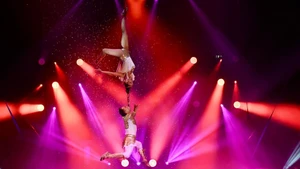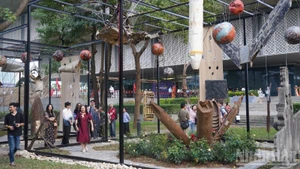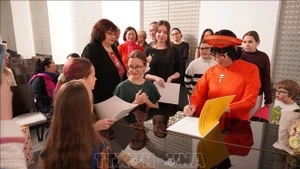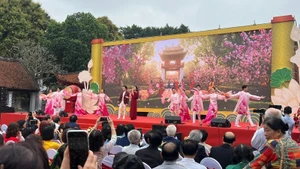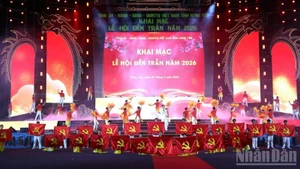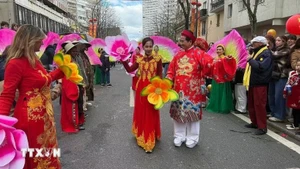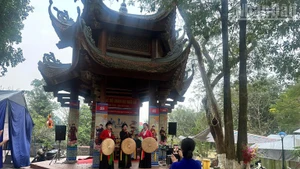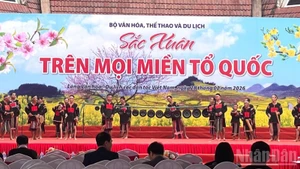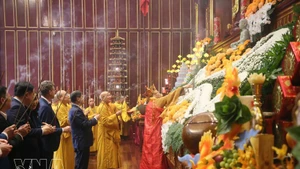In the context of the strong development of digital technology, the creation and popularisation of literary works are facing both opportunities and challenges.
One of the highlights of the discussion was the young authors sharing how they use technology and social platforms such as Facebook, Instagram, and TikTok to receive feedback and find new sources of inspiration.
A representative from Waka said that technology has had a significant impact and changed how literature is created and enjoyed.
Today, readers can easily access an online literary library through their devices with simple operations. This not only helps increase the number of views for the works but also creates a favourable environment for new authors who cannot afford to publish their books in printed editions.
Technology does not take away the value of works, but on the contrary, it enriches the experience of readers and writers.
Chairman of the Vietnam Writers Association, Nguyen Quang Thieu
Chairman of the Vietnam Writers Association, Nguyen Quang Thieu, acknowledged that the digital world has changed how people communicate and perceive literature.
Writers in the digital age not only compose literary works but also have to know how to share and popularise their works to readers.
The authors need to proactively integrate into the digital space to ensure that their voices are not lost in the flow of modern information.
“Technology does not take away the value of works, but on the contrary, it enriches the experience of readers and writers,” Thieu said.
According to digital media experts, the transformation of literature into the digital space requires authors to clearly understand how to use these platforms to optimise their works’ accessibility to readers and attract more attention from readers.
As a technology enthusiast, poet Tran Dang Khoa warned that Artificial Intelligence (AI) could make average writers lose their jobs, especially prose writers. He analysed that AI has a huge advantage in collecting and processing information, outlining structure, and no spelling mistakes.
Given the potential threat from AI, poet Tran Dang Khoa stressed that writers have to promote creativity to write works that AI cannot imitate. Only then can they maintain a controlling role, using technology as a tool instead of being dependent on or replaced by technology.
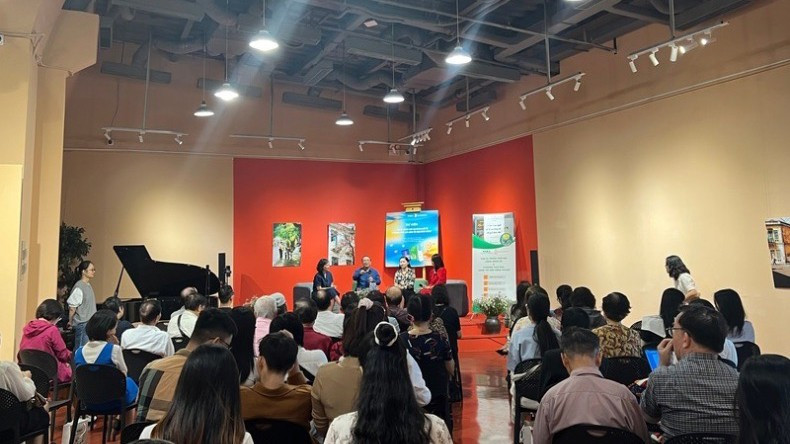 |
| Overview of the discussion |
Sharing the same view, poet and journalist Tran Kim Hoa, Director of the Vietnam Press Museum, said that literature can reach the public through many channels, such as books, newspapers, media, poetry clubs, and cultural activities, where poets can recite their verses directly to readers and receive their applause. Digital technology provides an additional path of creativity and popularisation of literature but cannot replace literature.
Several young authors using AI as a supporting tool in literary creation shared that although AI can create literary works, there are still some notable limitations.
First is the creativity matter. AI systems mainly rely on available data. Thus, works created by AI cannot truly replace the depth and richness that only storytellers can provide.
Next is the emotional matter. Literature is highly appreciated for its ability to convey deep emotions, but AI cannot feel or experience emotions, so works created by AI might not touch the hearts of readers.
In addition, AI often has difficulty understanding complex contexts and is limited in processing information related to cultural and historical contexts, which can easily lead to errors.
Digital technology brings undeniable benefits to literature writers but cannot completely replace the creativity and depth of literary works, especially in conveying emotions, thoughts and life experiences.
However, the rapid development of technology constantly poses challenges for creators, requiring them to hone their skills and qualities and produce high-quality work to avoid being left behind by the robust development of technology.

